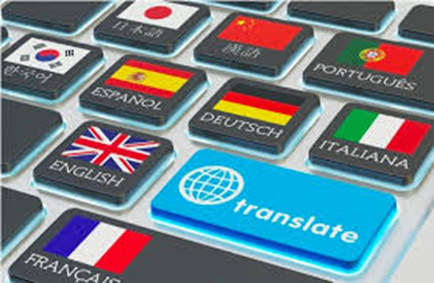What are the most important features and characteristics a good translator should obtain? What are his powers and responsibilities? And to what extent is it possible to set limits on the freedom or creativity of his or her mind?
Once a translator wants to do a good job, he has to learn how to switch between the different ways of thinking. As we might notice, every language is built on different structures of thinking. The best is when he also has a quite high level of empathy. When you are trying to make a translation of some text, it is good to understand its author and his way of thinking.
Understanding the topic of the text and if you are well informed within that area it really helps you to achieve a quality result. Sometimes you may face problems with finding no accurate words for the meaning of the translated text. Some languages do not contain words for some entities, for some processes, mental states, or abstract things which you cannot for example perceive with your senses. Or some languages have even more words for one thing – as for example Eskimos have many expressions on different types of snow. So you have to be quite resourceful to deal with such a situations.
Humility, one of the most important virtues, which a good translator should find or grow within himself, can be the key to successfully do his job. When you are an open personality and you are trying to build a strong base of self-reflection it can also be very helpful in translation work. Very often it is necessary to check again after some time the article, to see if there are not any mistakes or misunderstandings. If your mind is and stays open you will be able to see those mistakes in the text you already translated. Because, if we are not good in telepathy or it is not possible to consult on text with the author, we have to be prepared for making text corrections. And finally, we can reach capturing the true meaning of the text.
Of course, every translation activity is different, everything depends on the area, on the type, on the amount of translated text, and on many other things. For example, when we focus on the film industry, many people who are interested in movies and are able to watch and listen to them both in original language and translated into their native language, complain about big mistakes in translation. In many cases, especially when it comes to comedy movies it can be so difficult to use the right words so the meaning will stay funny. And, also every language has its own and different phrases, every language plays with words differently.
The translator has more freedom in cases when it is not necessary to translate totally the entire text from one sentence to another – in situations or occasions when the important is to express what the author wanted to say, to express his main ideas, no matter how many words the translator will use or if he will say one information sooner than the other. Of course the logic of talking (or writing) and logical sequence of text content must be maintained. In moments like those the translator can also use more of his creativity, when he can find his own words for expressing the meaning of what was said or written.
As long as people are still inventing new things, and as we all frequently receive new information from many areas of human activity, the translator is one who has to learn ad anfinitum. He continues learning because there will always be some new information, and not only that, none of the translators knows absolutely the whole vocabulary, so he or she always has reasons to search and discover.
